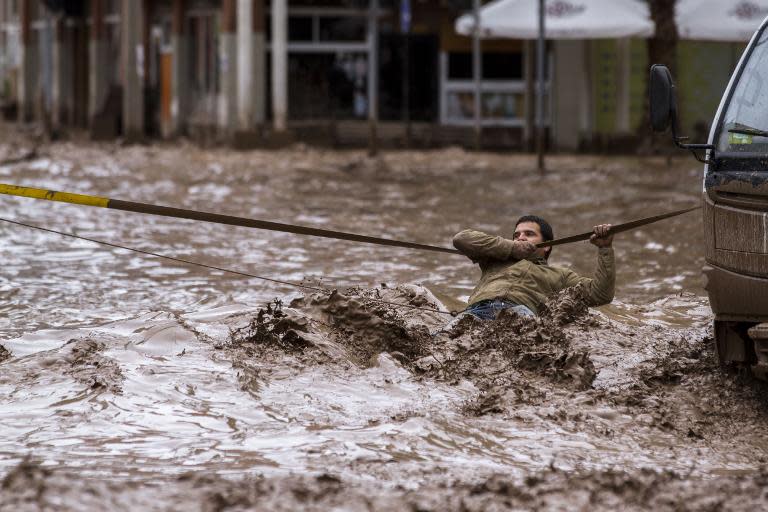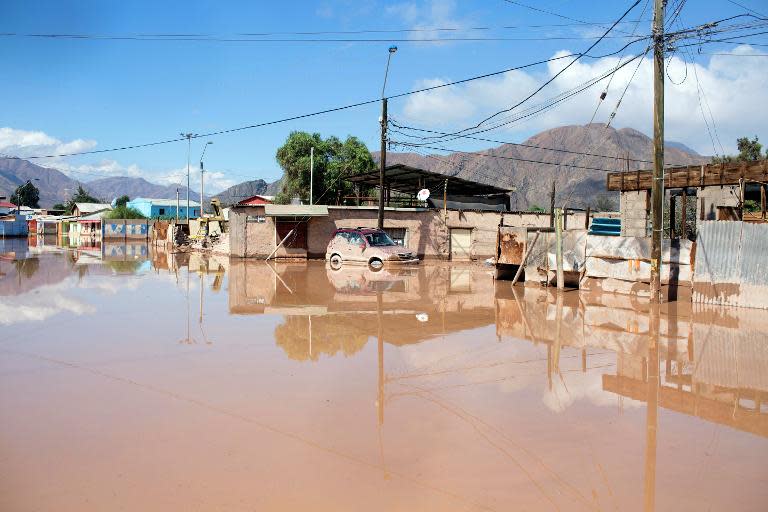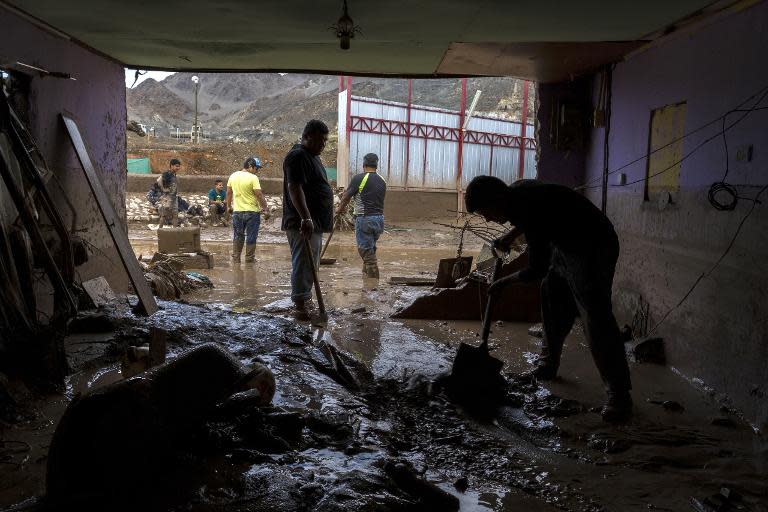Flooding in Chilean desert region kills six
Flash floods in a normally bone-dry region of northern Chile killed six people and left 19 missing, officials said, prompting the government to declare a state of emergency and send in the army. The downpour began late Tuesday in the Atacama region, home to the world's most arid desert, and lashed the area for hours, turning riverbeds that had been dry for years into torrents. Desperate residents scrambled onto the roofs of their houses or fled to high ground to escape the floodwaters, which turned the streets into rivers that swept up nearly everything in their path. The interior ministry declared a state of emergency late Wednesday and invoked a constitutional clause transferring power from the regional government to the military. The government initially reported seven deaths, but revised that number Thursday evening to six. The weather forced state copper company Codelco, the world's largest copper producer, to temporarily halt operations in Atacama and the neighboring region of Antofagasta. As Interior Minister Rodrigo Penailillo urged residents to evacuate, the army declared a curfew for the Atacama region and the city of Antofagasta. A total of 2,400 soldiers and police have been deployed to the disaster area. About 40,000 people were left without electricity and as many or more without potable water. President Michelle Bachelet said the downpour -- equivalent to at least 10 times the previously drought-hit region's average annual rainfall -- had caught authorities off-guard. "The prior assessment was that there was an enormous drought so rain would not necessarily be a catastrophe. It is very difficult to plan for because there was no way to know," said Bachelet, who flew into the disaster zone late Wednesday. "Obviously today there's a realization that once the emergency is over, defenses will need to be built up to prevent these things from happening in the future." One of those killed in the flooding was a 34-year-old man who was electrocuted, the interior ministry said. Another, a 35-year-old man, was killed by a water tank that collapsed. Both died in Antofagasta, a port city of about 380,000 people. Two more victims were killed when they were swept away by rushing water in Atacama. Other bodies were found later Thursday, the interior ministry said, without giving details. - Anxious search - The heavy rains had eased by Thursday morning, but emergency workers were still scrambling to deal with the aftermath. Classes were cancelled so emergency shelters could be set up in schools. Officials said 800 people had sought refuge in emergency shelters in Atacama and 680 in Antofagasta. Floods also cut off hundreds of residents in remote areas. Social media networks were rife with messages from people trying to get in touch with their loved ones, but communications were cut off for much of the affected area. As the brown waters of the Copiapo River began to recede, residents of the regional capital started returning to their houses, trying to salvage what belongings they could as they shoveled through the muck left behind. Flights were delayed at the Calama and Antofagasta airports, hubs for the area's mining operations. Chile, the world's largest copper producer, is responsible for about one-third of total global output, or 5.6 million tonnes per year. Codelco said operations were still suspended at its relatively small Salvador Division mines, but were "slowly resuming" at four other mines. Mining firms Anglo American and Antofagasta Minerals also suspended operations at some deposits in the flood-hit region. The area had seen years of drought, with the last major flood in 1997. The floods in the north came as southern Chile battled devastating wildfires exacerbated by a severe drought. Part of southern Chile was also on orange alert because of an increase in activity at the Villarrica volcano, just weeks after it erupted and forced thousands of people to evacuate.

 Yahoo Finance
Yahoo Finance 


